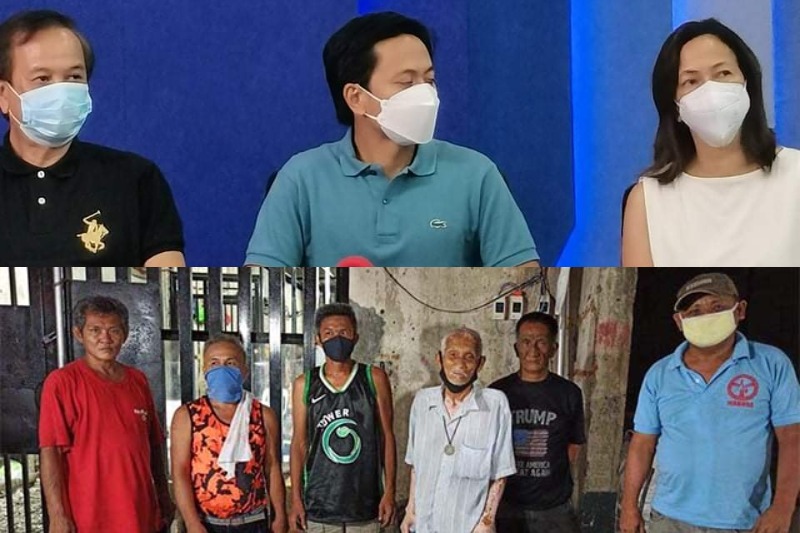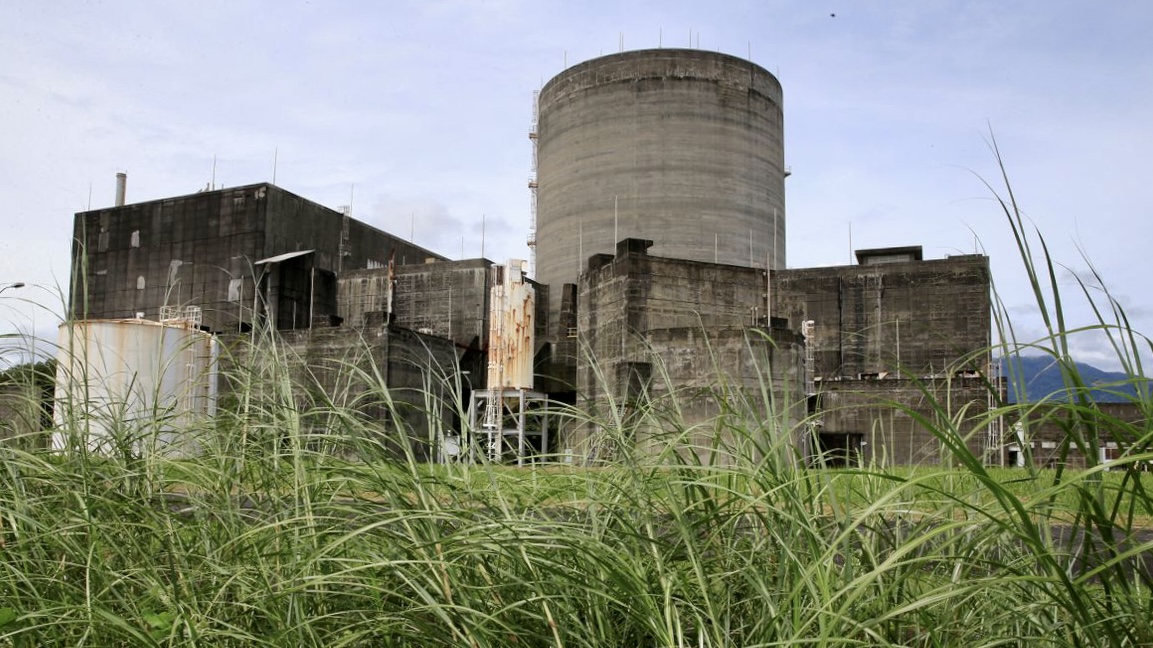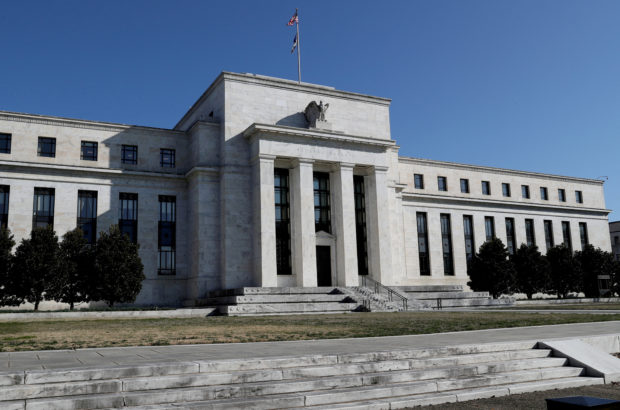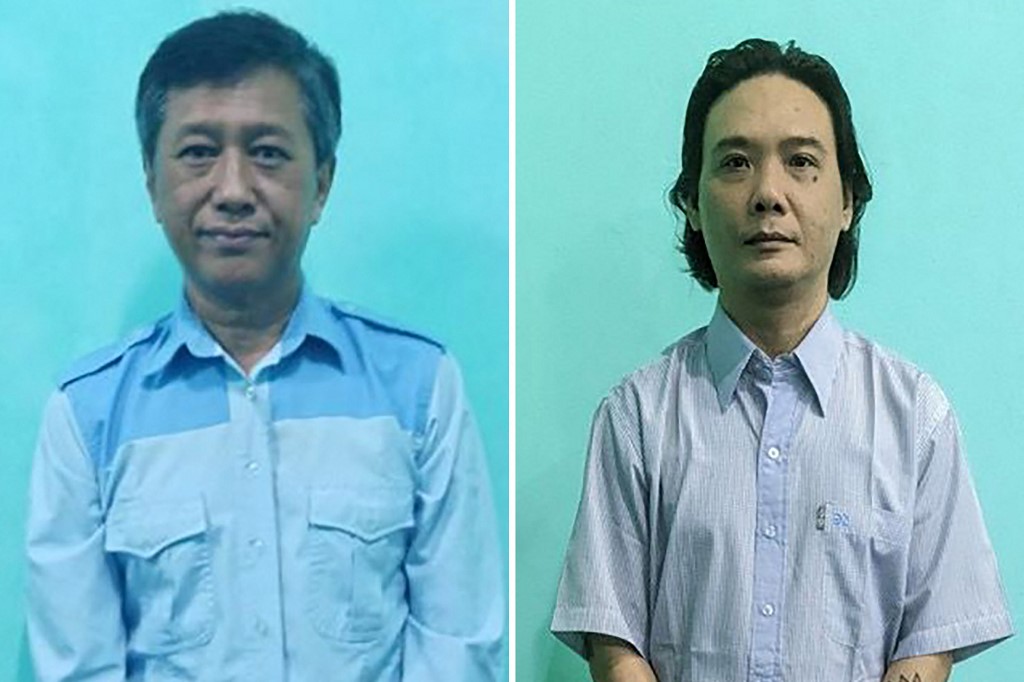[ad_1]
On the eve of the election final month, Crismo pleaded together with his cousins to rethink.
“Let’s bear in mind his good coronary heart and the ache that martial legislation introduced,” the 64-year-old wrote of his brother, with a hyperlink to particulars in regards to the disappearance. “Hopefully you’ll be part of us in serving to cease the dictator’s household from returning to energy.”
However his message went unanswered. Ferdinand Marcos Jr., often called “Bongbong,” received in a landslide. And Crismo hasn’t spoken to his cousins since.
When Marcos Jr. is inaugurated on June 30, it should cap a decades-long challenge to rehabilitate the picture of the Philippines’ most notorious household with a mix of on-line mythmaking, real-world alliances and messages of unity. However the household’s return to energy nonetheless has come as a shock to the hundreds of thousands who as soon as celebrated its expulsion.
The ache and confusion has been most intense for the relations of these killed and for the roughly 70,000 victims who survived detention, half of whom had been tortured, in line with journalists and human rights teams. Many really feel the darkest and most formative chapter of their lives is being erased — not solely by Marcos Jr., who refuses to acknowledge or apologize for his father’s abuses, but in addition by their very own households.
The problem has erupted at dinner tables and in household discussion groups, splitting relations and souring friendships. A bunch of psychologists who’ve been offering counseling for individuals who volunteered for Marcos Jr.’s opponent within the election marketing campaign estimated that as much as a 3rd of them speak of politically divided households.
“A classmate from medical college instructed me she voted for Bongbong and stated, ‘it’s time to maneuver on,’ ” recalled Imelda Cabatuando, who was detained for 3 months, electrocuted in her genitals and threatened with rape through the dictatorship. “I stated, ‘Don’t you dare inform me to maneuver on. I used to be tortured below Marcos.’ Then I unfollowed her on Fb.”
The election has uncovered outdated wounds. Nevertheless it has additionally revealed recent frustrations with liberal democracy within the Philippines, an in depth U.S. army ally that has drifted towards China below outgoing president and strongman Rodrigo Duterte.
Marcos Sr. declared martial legislation in 1972 after a collection of assaults he blamed on communist guerrillas, a few of which had been truly the work of his authorities. For the following 14 years, his forces arbitrarily arrested critics and suspected leftists, typically dumping their our bodies in public to suppress dissent. Marcos Sr. and his household additionally siphoned billions from authorities coffers, a few of which went towards the greater than 1,000 pairs of designer sneakers his spouse, Imelda, gathered.
When the dictator was ousted in a well-liked rebellion in 1986, nevertheless, the nation by no means totally reckoned with what it had gone by means of.
“We didn’t take inventory of what occurred in 1986 in any important means,” stated Carlos Conde, from Human Rights Watch. In contrast to another nations that endured dictatorships, the Philippines didn’t set up a fact and reconciliation committee to investigate and memorialize the abuses, he famous. It did create certainly one of Asia’s first human rights commissions and enabled victims to obtain some compensation from wealth reclaimed from the Marcoses. However political elites held on to energy, and little effort was made to coach youthful generations in regards to the martial legislation period.
“Lots of people stated we would have liked to ‘transfer on’ in 1986,” Conde stated. “Now we’re once more affected by the consequences of this ‘transfer on’ tendency.”
“It’s collective amnesia,” stated Raissa Robles, a journalist who wrote a guide on the martial legislation period. “After the Marcoses left, Filipinos had been traumatized. And once you’re a traumatized particular person, you’d fairly neglect what occurred.”
The rehabilitation of the Marcos title started in 1991, two years after Marcos Sr. died, when his household was allowed to return to face costs of tax fraud and graft. However the household not solely prevented jail; they quickly returned to politics. Marcos Jr. was elected to Congress in 1992. His mom — who remains to be interesting one set of corruption convictions — and older sister quickly adopted swimsuit.
Nevertheless it wasn’t till 2016 that the household totally re-emerged as a political pressure. That 12 months, Bongbong practically turned vp due to a complicated and well-funded social media technique that falsely painted his father’s dictatorship as a “golden age” of legislation, order and financial prosperity.
That on-line effort didn’t finish together with his candidacy however fairly continues at present, stated Jonathan Ong, a disinformation researcher on the College of Massachusetts and Harvard who studied the 2016 and 2022 elections.
“The Marcoses are saying they’re victims of a miswritten historical past,” he stated, including that Bongbong makes use of that sense of grievance to attach with unusual Filipinos annoyed with the established order. A lot of the evaluation has targeted on Marcos’s alleged use of troll farms and bots to assault critics, Ong stated. However what the marketing campaign did successfully was to flood social media with a “artistic archive” of Marcos “folklore” that appealed to many demographics.
Mary watched the disinformation ensnare her household. The 52-year-old, who requested that her final title not be used to keep away from worsening household tensions, is a “martial legislation child,” as they’re referred to as right here, who grew up through the dictatorship. Her middle-class household was largely insulated from the violence. Like hundreds of thousands of Filipinos, nevertheless, she and her siblings took half within the protests that pushed Marcos Sr. out.
Previously 12 months, nevertheless, Mary started to see her siblings submit pro-Bongbong statements on social media. When she requested, one sister replied that she had “come to a unique appreciation of historical past.”
Mary campaigned for Leni Robredo, Marcos Jr.’s essential opponent. When Marcos received greater than twice as many votes, Mary vowed on Fb to proceed opposing him. A few of her siblings mocked her, and Mary deserted a household group chat.
“My sisters trolled me,” she stated, her voice breaking. “I used to be so disillusioned in my household. Okay, you might be pro-Marcos, even when I don’t perceive you, that’s your perception, you’re my household, so be it. However trolling me?”
The election pitted Cleta Monsanto towards her eldest baby. Now 65, she was a mom of three younger youngsters in 1985 when her husband, Ireneo, was pulled off a bus and executed by troopers who suspected the instructor of being a communist insurgent. When she lately realized that her son helps Marcos Jr., Monsanto berated him over video chat.
“I really feel so offended towards my son,” she stated.
Cabatuando, who was detained and tortured by the Marcos regime in 1973, now lives in Australia, the place few folks know what she endured. However her household within the Philippines is nicely conscious. And on a go to there earlier than the election, she was dismayed to listen to youthful relations say they deliberate to vote for Marcos Jr. as a result of they felt his father’s reign had been affluent.
“It’s a golden lie,” Cabatuando stated. “Not a golden age.”
Marcos Jr., who declined by means of a spokesperson to be interviewed, has each distanced himself from his father’s dictatorship and downplayed its abuses. However he served as a governor and vice-governor for the final six years of his father’s reign.
“I maintain him one hundred pc accountable,” Cabatuando stated. “He knew what was being finished, and he benefited from it.”
“He’s under no circumstances harmless,” echoed Bonifacio Ilagan, a playwright and distinguished martial legislation sufferer. “He has been the chief propagandist.”
Ilagan was detained for 2 years, tortured after which launched simply days earlier than his sister was arrested and by no means seen once more. For him, Bongbong’s victory looks like a nightmare from which he can’t wake.
“It’s as if the entire tales we’ve been telling folks, all of the issues that occurred throughout martial legislation, by no means occurred in any respect,” he stated.
Marcos Jr.’s victory wasn’t solely right down to social media mythmaking, nevertheless. It was additionally because of a really actual alliance with Duterte. The strongman praised the martial legislation period and in some methods emulated it together with his bloody six-year conflict on medicine. Although Duterte was initially skeptical of Bongbong, his occasion endorsed him after Marcos Jr. struck a deal for the president’s daughter, Sara Duterte-Carpio, to be his operating mate.
That earned the help of Jaime Barbee Olaivar. Half a century in the past, he was a younger Marcos Sr. supporter who initially welcomed martial legislation. Then his father was detained for 2 years after blowing the whistle on a army rip-off. By the point of the 1986 revolution, Olaivar had joined the protests.
But he and his father blamed the army, not Marcos Sr. And when one other strongman got here alongside in 2016 promising to take away drug addicts from neighborhoods like Olaivar’s, he backed him. Olaivar retains a “Duterte: Man of Motion” bumper sticker on his fridge, a lot to the disgust of his two activist youngsters.
Now the household is split over his help for Marcos Jr., who has embraced not solely the Dutertes, but in addition the drug conflict. Olaivar’s son, James, 24, works for a authorities company dedicated to victims of human rights violations and spends a lot of his time serving to martial legislation survivors. Olaivar’s daughter, Jaynus, 26, directed a movie a few household impacted by a drug conflict killing.
One current night time, the trio renewed their argument over a dinner of noodles and cheese doughnuts.
“Marcos is just not our president,” Jaynus stated, prompting her father to accuse her and her brother of attempting to “destroy” Bongbong fairly than give him an opportunity.
“Forgive and neglect,” Olaivar stated, making a sweeping movement together with his hand. “Transfer on!”
“Say that to the victims of martial legislation,” answered James.
They sat on the similar dinner desk however lived in alternate realities. The youngsters learn Rappler, an impartial information group whose founder faces felony costs (and received a Nobel Peace Prize) after exposing human rights abuses below Duterte.
Their father felt the outlet deserved its authorized troubles and that mainstream media organizations had been biased towards the Marcoses. He most well-liked to learn pro-Bongbong blogs. As nightfall fell exterior, he dismissed the concept Marcos Jr. would repeat his father’s abuses as “BS.”
“You can’t predict the longer term,” he instructed his youngsters.
“However you’ll be able to have a look at historical past,” stated his son.
[ad_2]
Source link


/cloudfront-us-east-2.images.arcpublishing.com/reuters/54CZWTH7OBI4XCIIPFKA2JZUQM.jpg)

/cloudfront-us-east-2.images.arcpublishing.com/reuters/UE6M4QUVOZPYLBRQXSROQVGVEE.jpg)











